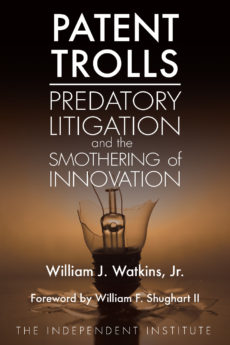Last week the City of New Orleans removed a statue of Confederate Gen. Robert E. Lee. This was the fourth, and final, Confederate monument the city has removed since late April. As usual in modern America, civil and intelligent discourse has been lacking in the debate about Confederate monuments. The Huffington Post states the removal of Lee’s monument marks the end of a “campaign to expel symbols of white supremacy from public property.” The Daily Kos has branded the Louisiana House of Representatives an organ of “white supremacy” for passing a bill to prevent any war memorial from being removed or altered. The majority supporting the bill were called “hideously racist.”
In America today, such rhetoric makes civil discussion of issues relating to the Civil War or War Between the States impossible.
This is sad. In the late 1800s and early 1900s, Union and Confederate veterans regularly met in organized reunions. These men who had seen comrades suffer and die were able to put aside such ugly memories and reminisce about the shared experiences of being a combat solider. Old Yanks and old Rebs celebrated each other’s martial valor; they believed that the Grey and the Blue fought for equally honorable causes. (A good book discussing these reunions and other issues is David Blight’s Race and Reunion.) They could believe in the righteousness of their own causes without demonizing those who disagreed.
Not that long ago, even Hollywood and the entertainment industry had no problems respecting Confederates. For example, take the movie She Wore a Yellow Ribbon (1949) staring John Wayne. In this western, Wayne plays an aging cavalry captain whose last mission is to suppress an Indian breakout. There’s a scene toward the end of the movie where Trooper Smith, an ex-Confederate, dies of his wounds in a battle with the Cheyenne. Wayne has “Trooper Smith” buried under his real identity, CSA Cavalry Brigadier General Rome Clay, who had joined the U.S. Army after the War Between the States. Wayne, whose character fought for the Union during the War, has Rome Clay buried with a makeshift Confederate Battle Flag over his body and describes him as “gallant solider and a Christian gentleman.”
Or how about the song “You’re a Lucky Fellow, Mr. Smith,” sung by Frank Sinatra in 1964 and appearing on the Album America, I Hear You Singing, a collection of patriotic songs that were recorded as a tribute to the assassinated president John F. Kennedy.
Hey, you’re a lucky fellow, Mr. Smith (Mr. Smith) to be able to live as you do,
And to have that swell Miss Liberty gal carrying the torch for you.
(You’re a lucky fellow. Mr. Smith), look around you if you want to brag,
You should thank your lucky stars and I mean, thank all 50 in your flag.
(And you really got a family tree) with Washington, Jefferson, Lincoln and Lee,
(You’re lucky to have ancestors like that),
you were born with a feather in your hat
Yep, Ol’ Blue Eyes sees our American family tree as containing Washington, Jefferson, Lincoln, and Lee–all of whom we should be proud of.
How times have changed…
If the former combatants in the celebrated reunions mentioned above could fellowship together, avoid name-calling and imputing dark motives to the other, and the entertainment industry in the mid-twentieth century could honor Lee and Confederate soldiers, why can’t we do that in 2017? Can’t good and reasonable people hold different views of the monument question (or a host of other matters)?
Not from the perspective of the modern political left. Increasingly, those with whom the Left disagrees with are considered “deplorables” who should not be debated, but silenced. Recent examples are Ann Coulter at UC Berkeley and Charles Murray at Middlebury College. The story of Chadwick Morris and the Left turning on him also makes interesting reading. (See also this NYT story on Liberal Intolerance).
Right now, the focus on removal of monuments and renaming buildings is the Confederate States of America. However, there are movements all around the country to remove the names of former slaveholders from public buildings. Yep, this means George Washington, Thomas Jefferson, James Madison, etc. We are awash in a tide of presentism: an unthinking adherence to present-day attitudes with which we interpret past events. It’s a great thing we live in a country where we cannot even imagine owning another human being. But we are all products of our times and are arrogant to believe that had we been born in 1800 we would have been any different than those who actually lived then. Historian Lynn Hunt has this to say about the matter:
Presentism, at its worst, encourages a kind of moral complacency and self-congratulation. Interpreting the past in terms of present concerns usually leads us to find ourselves morally superior; the Greeks had slavery, even David Hume was a racist, and European women endorsed imperial ventures. Our forbears constantly fail to measure up to our present-day standards. This is not to say that any of these findings are irrelevant or that we should endorse an entirely relativist point of view. It is to say that we must question the stance of temporal superiority. . . .
I’d just suggest that on the Monument issue, or any other hotly contested matter, let’s take a lesson from the Union and Confederate vets. One should believe in the righteousness of his own cause; but don’t assume that those on the other side act from malicious motives because they have come to a different conclusion. Let’s reject the pull of presentism and embrace living in a country that boasts of Washington, Jefferson, Lincoln, and Lee.
* * *
William J. Watkins, Jr. is a Research Fellow at the Independent Institute and the author of the Independent book, Crossroads for Liberty: Recovering the Anti-Federalist Values of America’s First Constitution.
 Jeremy Corbyn’s socialist policies of state control, high spending, class warfare and punitive taxation have been tried in many countries. We know how these policies turn out and it is always the same: badly.
Jeremy Corbyn’s socialist policies of state control, high spending, class warfare and punitive taxation have been tried in many countries. We know how these policies turn out and it is always the same: badly. Berkeley’s soda tax is being trumpeted as a success because a
Berkeley’s soda tax is being trumpeted as a success because a 
 What happens if the TSA catches someone with a firearm at one of their checkpoints? It happens a lot. Last year the TSA
What happens if the TSA catches someone with a firearm at one of their checkpoints? It happens a lot. Last year the TSA  Films often take creative license to deviate from historical fact, and
Films often take creative license to deviate from historical fact, and 





